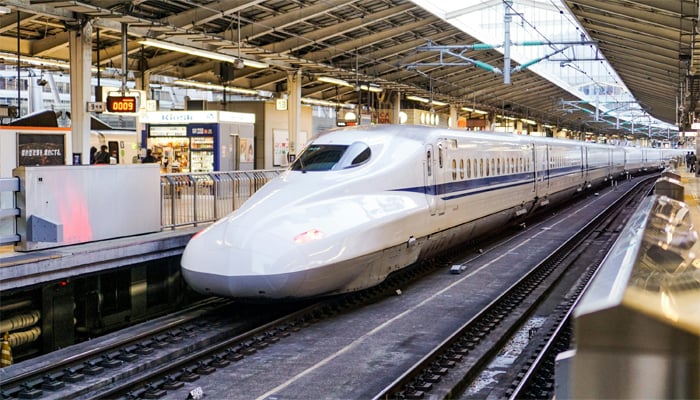
An undated image of bullet train. — Unsplash
In a bid to transform the country, the general manager of Guangzhou Metro Group (GMG), a Chinese transportation company, has agreed to assist Pakistan in developing a bullet train project if the country seeks support.
The GM highlighted that Guangzhou Metro handled billions of passenger journeys in 2024, with millions depending on the service every week.
He noted that safety and punctuality remain top priorities, given the scale of operations and the vital role public transit plays in urban mobility.
Notably, the Karachi-Lahore bullet train project will significantly reduce travel time between the two provincial capitals from 20 hours to just five hours.
According to Railways Minister Muhammad Hanif Abbasi, the 1215-kilometre-long high-speed rail line is part of the $6.8 billion ML-1 upgrade under the China-Pakistan Economic Corridor (CPEC) project.
The GM noted that GMG has already shared technology and expertise with international projects, including in Pakistan, Singapore, Ho Chi Minh City (Vietnam), and Hong Kong. This reflects the company’s reputation for setting global standards in metro planning, construction, and operations.
Previously in Pakistan, GMG has contributed to infrastructure initiatives, and its willingness to assist in a bullet train project aligns with the growing demand for modern, high-speed rail connectivity in the country.
However, Pakistan has yet to formally pursue a bullet train initiative; Guangzhou Metro’s readiness signals a potential pathway for China-Pakistan collaboration in advanced transportation.
Beyond offering faster and more efficient passenger travel, the high-speed rail line is expected to increase Pakistan’s freight capacity, increasing the rail share from 4% to 20% by 2030.
According to officials, the bullet train project in Pakistan is expected to generate thousands of employment opportunities during both the construction and operational phases.
Pakistan Railways currently operates over 7,700 kilometres of track but faces chronic issues due to decades of neglect and mismanagement.
















